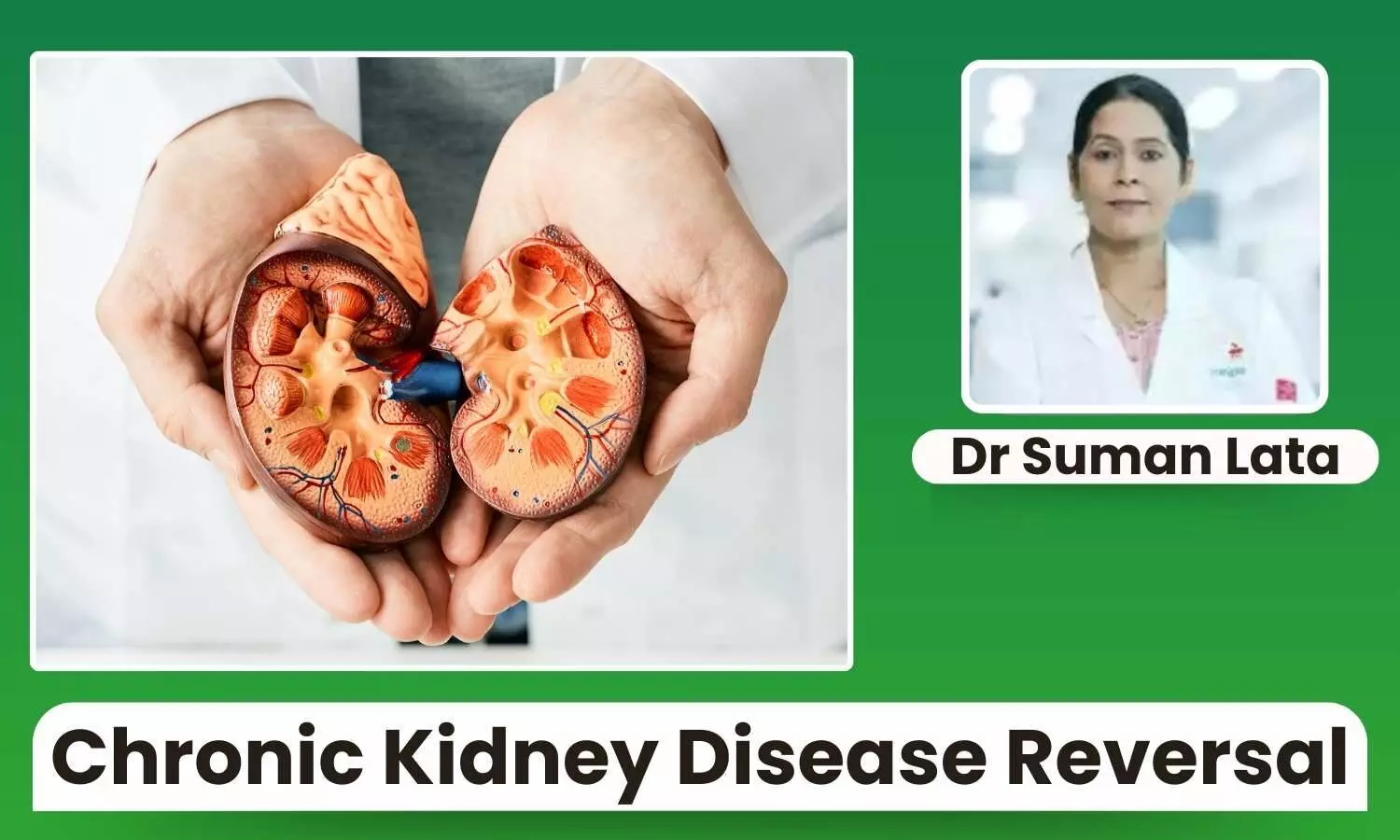Can CKD Be Reversed? Understanding Early vs Late Stage Kidney Damage - Dr Suman Lata

Kidney problems are a fast-rising issue in India, with increasing more individuals every day being detected with one type of kidney disease or another. The scenario is alarming as cases keep arising due to a combination of factors such as lifestyle, increased cases of diabetes and hypertension, and an overall deficiency of knowledge concerning kidney health.
A report from the National Library of Medicine has found that India experienced a 38% increase in the rate of deaths caused by kidney failure. The statistics make for very serious reading for the way that kidney issues tend to spiral rapidly into chronic kidney disease (CKD), which is a disease hard to cure and usually fatal unless detected in its early stages.
Can CKD Be Reversed?
CKD occurs when untreated kidney issues progress over time, leading to permanent damage. Once CKD develops, the kidneys slowly lose their ability to filter waste and toxins from the blood.
Although some kidney issues can be cured but CKD is irreversible, and patients are often forced to undergo dialysis or a kidney transplant to live in the advanced stages of CKD.
Since, it cannot be reverted, but its progression may be slowed down by controlling BP, sugar levels and through lifestyle modifications.
In the initial phases of CKD, it is advisable to go through proper medical treatment, dietary modifications, and control of underlying conditions such as raised blood pressure or diabetes. The secret, therefore, is to catch the disease early before things get out of hand.
Early vs Late-stage Kidney Damage
CKD is a silent killer, so knowing the difference between early and late-stage kidney damage can be the difference between life and death when it comes to treatment. Patients suffering from Diabetes Mellitus, Hypertension, Chronic kidney infection or family history are at a higher risk of developing CKD.
Early symptoms of kidney issues are usually subtle or overlooked. One may feel tired, must often urinate during the night, see swelling in their ankles or around the eyes, or feel an increase in blood pressure.
The best news is that if one can catch kidney issues early, and can take steps to enhance kidney function. This could involve reducing salt intake, increasing water consumption, maintaining blood sugar levels within a healthy range, and eliminating some medications that put a burden on the kidneys.
By the time kidney injury has reached a late stage (Stage 4 or 5 CKD), the symptoms are much more difficult to overlook. Individuals with late-stage CKD tend to suffer from extreme tiredness, nausea, vomiting, muscle spasms, and concentration problems.
By this time, kidney function is lowered to such an extent that treatment becomes limited. Dialysis or a kidney transplant is usually an angel in disguise. To prevent reaching this point, it's essential to practice measures such as:
- Periodic blood pressure and sugar check-ups
- Regular kidney function test and monitoring
- Adherence to a kidney-friendly diet
- Maintaining physical activity levels, and
- Not indulging in risky behaviours such as smoking and heavy alcohol use.
For patients who have developed end-stage kidney disease, a kidney transplant can be a lifeline. A transplant is the process of receiving a healthy donor kidney, allowing patients to lead a more normal life without the need for ongoing dialysis. It is usually highly successful and can greatly enhance the quality of life for recipients.


